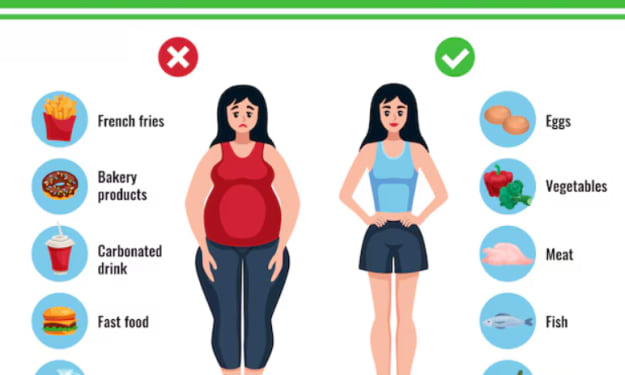has the FDA approved a new weight loss drug for you?
weight loss new drug

Over 70% of American adults are overweight, which raises their risk of developing chronic diseases like type 2 diabetes, heart disease, liver disease, arthritis, and several malignancies.
Deborah Korner
Losing weight has been demonstrated to lower that risk. Despite the fact that more people are striving to lose weight now than ever before, a nationwide research found that two-thirds of those who do so quickly gain it back.
According to endocrinologist Judith Korner, MD, PhD, professor of medicine at Columbia University Vagelos College of Physicians and Surgeons and director of the Metabolic and Weight Control Center at Columbia, obesity is a heterogeneous disease with many different causes. As a result, what works well for one person to lose weight may not be effective for another.
Approximately 2,000 patients in a 68-week placebo-controlled trial(link is external and opens in a new window) with a body mass index of at least 27 lost an average of nearly 15% of their body weight compared to 2.4% in the semaglutide group. (Both groups exercised and followed a diet.) In contrast, weight loss from other drugs ranges from 4% to 11% on average.
We chatted with Korner to learn more about the new medication and what people should remember if they are thinking about using it to aid in weight loss.
How does the novel medication function?
Semaglutide, a brand-new medication, is a GLP-1 receptor agonist. It belongs to a group of medications that have been used for a long time. These drugs act similarly to GLP-1, a hormone our bodies produce when there is food in the intestines that aids the pancreas in producing insulin when blood glucose levels are up. GLP-1 receptor agonists were initially created to combat type 2 diabetes.
It was later discovered that the hormone also affects appetite centres in the brain to lessen hunger and slows down gastrointestinal motility, which helps us feel full. Normally, the body releases GLP-1 naturally after eating in around 15 minutes. However, you can cause a lot of harm with only a
Medications that act as GLP-1 receptor agonists deliver this hormone continuously. With fewer quantities and reduced hunger, people who take this kind of medication are able to feel full, which encourages weight loss. A signal that some people don't seem to receive on their own is provided by the hormone. The reason why some people eat more isn’t because they have less willpower, it’s because they aren’t getting a signal that other people get when they eat. We anticipate that the medication will send this signal, enabling them to eat less food.
How effective is the new medication in comparison to existing medications for weight loss and surgery?
Semaglutide, which has an injectable dosage range of up to 2.4 mg, was investigated just for weight loss. Compared to other medications in this class that are already on the market, it was far more successful in terms of the amount of weight reduction it caused. (An additional medication known as Ozempic has a lesser dose of semaglutide, but it has been tested in patients with type 2 diabetes.)
In the clinical experiment, which was directed by scientists in the UK, the semaglutide-treated group experienced a mean weight loss of over 15%. Therefore, you might anticipate losing 30 pounds if you weigh 200 pounds.
This medication appears to cause more weight loss than any other currently available
Perhaps a third of people on alternative weight loss medications could anticipate losing 10% of their body weight. However, over a third of the patients who took the new medication dropped more than 20% of their body weight, which is beginning to approach the rate of weight reduction seen with some types of bariatric surgery.
We shouldn't anticipate that any particular drug will be a panacea or that it will necessarily be effective for everyone.
Can the new medication enhance general health?
Clinically substantial weight loss—where we truly observe changes in health—for people with a BMI of 25 or above is roughly 5% of their starting weight. And in this experiment, more than 86% of semaglutide group participants lost at least 5% of their body weight.
Pre-diabetics were included in the experiment, but persons with diabetes were not. Many of those using the medicine saw their blood sugar levels return to normal after having pre-diabetes.
Should candidates considering bariatric surgery try this medication instead?
I believe it would be worthwhile to try this drug if someone is on the verge of being a candidate for bariatric surgery. Losing weight may help lower their chance of surgical problems even if they eventually undergo bariatric surgery.
Even if a patient shed 20% of their body weight and still had an extremely high body mass index, they would be considered obese. Many patients continue to be obese or gain some weight back after surgery. Therefore, this medicine may also be used to reduce weight gain following surgery.
After losing weight, may patients discontinue using the medication?
In our clinic, we treat obesity as a chronic illness that, for the majority of patients, necessitates lifelong care. According to studies, the majority of people who quit taking weight-loss medication gain the weight back. And the reason is that the drug may provide signals—telling them they are full or quelling their hunger—that they don't have on their own. It will be just as challenging to keep the weight off if you stop taking the medicine because those signals will disappear and hunger signals will return.
Some individuals using weight-loss medications also learn to eat healthier and exercise, and are able to quit the
About the Creator
Enjoyed the story? Support the Creator.
Subscribe for free to receive all their stories in your feed. You could also pledge your support or give them a one-off tip, letting them know you appreciate their work.





Comments
There are no comments for this story
Be the first to respond and start the conversation.